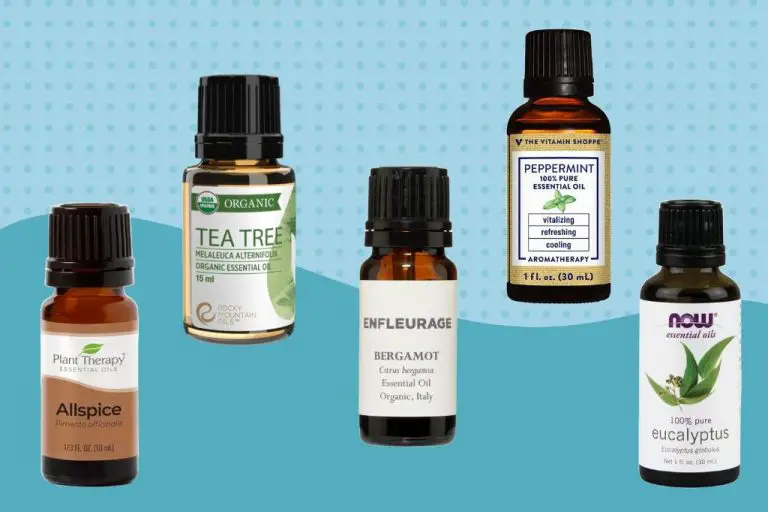Are Coffee Oils Good Or Bad For You?
Coffee is one of the most popular beverages in the world, known for providing a boost of energy thanks to its caffeine content. However, coffee also contains oils known as cafestol and kahweol which are produced naturally during the brewing process. These oils have sparked debate around whether they provide health benefits or risks.
On one hand, some studies have found that coffee oils may help reduce inflammation and offer antioxidant effects. However, there is also research showing that cafestol can raise LDL cholesterol levels, leading some to believe that coffee oils may increase heart disease risk.
This article will provide an overview of the research around coffee oils and cholesterol. We’ll explore the potential pros and cons, how filtration affects oil content, which types of coffee contain more oils, and steps you can take to maximize benefits while minimizing potential risks.
What Are Coffee Oils?
Coffee oils are naturally occurring compounds found within coffee beans. They are produced when the beans are roasted, which causes the oils locked inside to be released. As the beans are ground, more coffee oil is exposed and released (Source).
When brewing coffee, the hot water extracts these oils from the grinds. You’ll notice them floating on top of a cup of coffee, creating a shimmery or oily sheen. French press coffee often has particularly high oil content due to the long exposure time between water and grinds (Source).
The amount of oil in a cup of coffee depends on factors like the bean variety, roast level, grind size, and brew method. Darker roasts tend to be more oily. Finer grinds lead to greater oil extraction. So brewing methods like espresso and French press produce high oil coffee.
Potential Health Benefits
Coffee oil contains antioxidants and has demonstrated anti-inflammatory effects, which may provide some health benefits. According to one study published on Coffee Prices, the antioxidants in coffee oil called polyphenols may help protect cells from damage and reduce inflammation. The polyphenols found in coffee beans and coffee oil include chlorogenic acid, caffeic acid, and hydroxycinnamic acid.
Chlorogenic acid, in particular, has been shown to have antioxidant and anti-inflammatory properties in research studies. A 2018 review noted that chlorogenic acid helped reduce oxidative stress and inflammation markers in human trials. The review suggested chlorogenic acid may have protective effects against chronic disease. Coffee oil’s anti-inflammatory effects could potentially help reduce inflammation related to conditions like arthritis, heart disease, and diabetes.
In addition to chlorogenic acid, coffee oil contains caffeic acid. According to a 2019 research review, caffeic acid demonstrated antioxidant, anti-inflammatory, and neuroprotective properties in studies on cells and animals. More research is needed to confirm these potential benefits in humans.
Potential Health Risks
Coffee oils contain chemicals called cafestol and kahweol that may raise LDL (bad) cholesterol levels. Studies have found that drinking boiled, unfiltered coffee leads to increased cholesterol levels while filtered coffee does not (1).
According to research published in the Journal of the American Heart Association, coffee oils such as cafestol can increase LDL cholesterol by 6-9 mg/dL for each cup consumed (2). The impact is most significant for those at risk of high cholesterol.
However, the effect on cholesterol seems to depend on the brewing method. Filtered coffee that removes most of the oils does not appear to affect cholesterol levels (1). Espresso also contains lower levels of cafestol compared to boiled or French press coffee.
Overall, coffee oils may raise LDL cholesterol, especially when consumed through unfiltered methods. Those concerned with cholesterol levels can minimize intake of oils by choosing filtered brews. Moderation is key, as 1-2 cups per day, even of unfiltered coffee, is unlikely to cause clinically relevant changes.
Sources:
(1) https://www.health.harvard.edu/blog/pressed-coffee-going-mainstream-drink-201604299530
(2) https://www.healthline.com/health/high-cholesterol/coffee-link
Impact on Taste
Coffee oils contribute substantially to the flavor, aroma, and mouthfeel of coffee. As coffee beans are roasted, oils are produced on the surface of the beans. These oils contain hundreds of volatile aromatic compounds that provide the complex flavors and aromas we associate with coffee [1]. The oils also contribute to the rich, smooth mouthfeel of freshly brewed coffee.
Fresh coffee oils are beneficial, imparting pleasant flavors and aromas. However, as coffee ages and goes stale, the oils can turn rancid and take on unpleasant flavors. One post on a coffee forum notes “The old coffee oils taste rancid. Fresh and clean group heads, screens and baskets” are needed for good flavor [2]. Therefore, using freshly roasted and ground coffee is important to maximize good flavors from the oils and avoid rancidity.
Overall, coffee oils are very important for a quality cup of coffee when fresh, but can detract from flavor as coffee goes stale. Focusing on fresh beans and proper brewing helps bring out the best attributes of coffee oils.

[1] https://www.baristaexchange.com/forum/topics/spent-coffee-pucks
[2] https://coffeesnobs.com.au/forum/coffeesnobs-discussions/general-coffee-related/46717-smeg-built-in-machine-at-work-can-i-get-good-coffee-from-it
Should You Filter Coffee Oils Out?
Whether to filter out coffee oils is a complex issue with pros and cons on both sides. Paper filters are very effective at removing oils, including cafestol, kahweol, and other lipid compounds. Some studies show cafestol can raise LDL cholesterol levels, so filtering may provide heart health benefits for some [1]. However, oils also contain beneficial antioxidants and polyphenols. Unfiltered coffee like French press retains these compounds.
Other brew methods also influence oil content. Espresso contains more oils since it uses finely ground coffee at high pressure. Metal filters allow some oils to pass through versus paper. Cloth or reusable filters let the most oils remain compared to disposable filters [2]. Overall, filtering out oils has advantages for cholesterol but may remove some beneficial antioxidants too.
Oil Content in Different Coffees
The oil content in coffee beans can vary significantly depending on the roasting level and processing method used.1 In general, lighter roasts contain more oils than darker roasts, as the roasting process breaks down some of the oils over time.
Light roasts typically have an oil content around 15-17%, whereas dark roasts are usually around 13-15%. The longer the roasting time, the more the oils get decomposed by heat and reduced. This results in a less oily, lighter-bodied coffee with a more roasted flavor.2
Processing method also impacts oil content. Coffee beans processed via the wet method tend to have slightly less oil than beans processed via the dry method. This is because water washes away some of the oil in wet processing. The dry method keeps more oil intact.3
Knowing the roast level and processing can help determine the expected oiliness and flavor profile of a particular coffee.
Maximizing Health Benefits
Coffee oils contain antioxidants such as tocopherols and chlorogenic acid that may provide some health benefits when consumed in moderation as part of a balanced diet according to this source. However, more research is still needed on the potential benefits of coffee oils specifically.
To maximize any potential health benefits from coffee oils, it’s important to consume them in moderation as part of an overall healthy diet and lifestyle. The Dietary Guidelines for Americans recommend limiting added fats and oils to less than 10 percent of total daily calories. Drinking just 1-2 cups of coffee per day with moderate amounts of coffee oils can be part of this balanced approach.
Pairing coffee consumption with a diet focused on whole, minimally processed foods like fruits, vegetables, whole grains, lean proteins, and healthy fats can help maximize any benefits from coffee oils while limiting risks. Avoid drinking coffee with sugary baked goods or other unhealthy foods. Staying active and maintaining a healthy body weight are also key.
While coffee oils show promise for health, they should be enjoyed as part of an overall healthy lifestyle, not as a cure-all. More research is still needed on the specific health effects of these oils. But moderate intake paired with an otherwise balanced diet and active lifestyle can help maximize potential benefits while limiting risks.
Minimizing Potential Risks
While coffee oils may offer some health benefits, consuming them in excess could potentially raise your cholesterol levels. One study found that unfiltered coffee containing cafestol and kahweol oils was associated with increased LDL cholesterol in some individuals (https://perfectdailygrind.com/2022/05/oils-in-coffee-and-cholesterol/).
To minimize any potential risks, avoid overconsuming coffee oils by:
- Drinking no more than 3-4 cups of unfiltered coffee per day
- Alternating brew methods and using paper filters some of the time, which can remove most oils
- Opting for instant coffee occasionally, which contains very little oil
Moderation is key. By limiting your intake of coffee oils and using paper filters on occasion, you can enjoy your coffee while optimizing its health benefits and minimizing risks.
Conclusion
In summary, coffee oils contain a complex mixture of compounds that may have both health benefits and risks. On the potential benefit side, coffee oils contain antioxidants such as cafestol and kahweol that may help protect against cancer, diabetes, and liver disease. The oils also contain compounds that contribute to coffee’s aroma and flavor. However, coffee oils are implicated in raising LDL cholesterol levels, especially unfiltered coffee oils. There are also some potential concerns that coffee oil compounds may impact digestion, though more research is still needed.
Overall, consuming a moderate amount of coffee (around 3 cups per day) is considered safe for most healthy adults. To maximize potential health benefits while minimizing risks, it may be advisable to use paper filters when brewing coffee. This helps remove most of the cafestol that can raise cholesterol levels. Additionally, avoiding excessive coffee intake beyond 3-4 cups per day is recommended.
There are still uncertainties around the mechanisms and long-term effects of specific coffee oil compounds. More research is needed on the impacts of coffee oil consumption, especially related to digestion and gut health. But overall, coffee oils contain a complex balance of beneficial and risky compounds that are likely fine in moderation, though may be cause for concern in excess.






